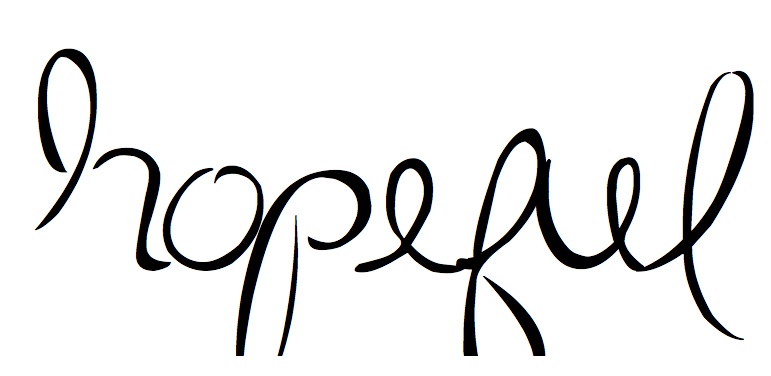 I’ve been thinking about humility a lot lately, and even asking God for it. Maybe that seems like a weird request. If you know me though, you might be nodding your head in agreement that I could use a good dose of God-inspired humility. I’m glad we’re on the same page. I’m in the process of reading a book called Humility by C.J. Mahaney. If you want to know the truth, I’m embarrassed to read it in public. I’m afraid people will look at me and upon even seeing the way I’m dressed or how I stand, mentally agree that I ought to read the book. I fear this because I have been accused of pride and arrogance more times than a person ought to ignore. And it’s not that I’ve ignored it in the past, but I always believed my parents when they told me I was good at things and that sometimes maybe people were jealous, so while I now watch the way I talk about myself, I have continued to maintain what is perhaps an overly positive self-image. That’s hard for me because mostly I’m grateful that I was raised in a way that has given me the confidence to dream big dreams and use the gifts I’ve been blessed with to go after and often achieve those dreams. I’ve always told myself that I’m confidant, not arrogant, and I qualify that by then saying my actions and achievements back up my claims. If I was failing all the time, I wouldn’t act like I was good at the things I do. I think I’ve gotten better about making statements that sound arrogant—I certainly make them less often than I think them. (And yes, I realize that’s horrible. I do.)
I’ve been thinking about humility a lot lately, and even asking God for it. Maybe that seems like a weird request. If you know me though, you might be nodding your head in agreement that I could use a good dose of God-inspired humility. I’m glad we’re on the same page. I’m in the process of reading a book called Humility by C.J. Mahaney. If you want to know the truth, I’m embarrassed to read it in public. I’m afraid people will look at me and upon even seeing the way I’m dressed or how I stand, mentally agree that I ought to read the book. I fear this because I have been accused of pride and arrogance more times than a person ought to ignore. And it’s not that I’ve ignored it in the past, but I always believed my parents when they told me I was good at things and that sometimes maybe people were jealous, so while I now watch the way I talk about myself, I have continued to maintain what is perhaps an overly positive self-image. That’s hard for me because mostly I’m grateful that I was raised in a way that has given me the confidence to dream big dreams and use the gifts I’ve been blessed with to go after and often achieve those dreams. I’ve always told myself that I’m confidant, not arrogant, and I qualify that by then saying my actions and achievements back up my claims. If I was failing all the time, I wouldn’t act like I was good at the things I do. I think I’ve gotten better about making statements that sound arrogant—I certainly make them less often than I think them. (And yes, I realize that’s horrible. I do.)But none of those things are the real problem. Sure, it rubs people the wrong way when I make seemingly arrogant statements and it certainly isn’t conducive to friendship, but that still isn’t the issue. The issue is the prideful position of my heart. Mahaney defines it this way: “Pride is when sinful human beings aspire to the status and position of God and refuse to acknowledge their dependence upon Him.” Logically, I don’t want the status or position of God, but more often than not, when I achieve something good—whether in school or now work or even a relationship—I do not acknowledge that my depravity as a human being requires nothing short of total dependence on God; because if I did acknowledge that, I wouldn’t be talking about the fruit of my achievements, I would be talking about the grace of God.
And so tomorrow, when I wake up to celebrate the reality of my risen Savior, I’ll do it begging for a humble heart. I am aware that I do not fully realize just how much grace it is that I am able to even write these words. I am aware that I don’t realize my capacity to develop creative thoughts, images or ideas, whether they are for my writing or for my work, is daily evidence of grace. My prideful heart is that of a depraved and fallen human being in desperate need of redemption. And in that way, we are all alike.
Thus it is written, that the Christ should suffer and on the third day rise from the dead, and that repentance and forgiveness of sins should be proclaimed in his name to all nations,beginning from Jerusalem. (Luke 23.46-47)
Now the Lord is the Spirit, and where the Spirit of the Lord is, there is freedom. And we all, with unveiled faces, beholding the glory of the Lord, are being transformed into the same image from one degree of glory to another. (II Corinthians 3:17-18)
And so I have this Great Hope.


No comments:
Post a Comment